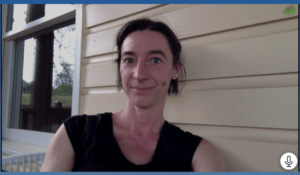Keep Teaching: The Importance of Faculty Community

Blog posts in the Keep Teaching series are written by CTL faculty and faculty from around the Institute to offer advice and inspiration during the COVID-19 disruption. For official Institute academic continuity resources, visit this page. You will also find more teaching and learning tips on the CTL Keep Teaching site.
Guest Blogger Dr. Chrissy Spenser
School of Biological Sciences
We’ve all asked ourselves how to roll our previous activities into the new normal of remote everything at work–research, meetings, and instruction – and home. Before mid-March, the Science Education Research Group (SERGE) met in person every other week to discuss recent literature in discipline-based education research, to review manuscripts for group members, and to hash out research ideas. Faculty, staff, and students from Tech, Georgia State, and Emory gather to talk about current research on evidence-based teaching and learning. We’ve used Bluejeans periodically to allow members from GSU and Emory to participate without making the physical trip to Georgia Tech in the middle of a workday.
Then came the Covid-19 crisis and the directive to social distance. In the week following Spring Break, when we were asked to pilot meetings with our classes, SERGE met as usual on Monday 3/23. We thought about cancelling, thinking people might need time to retool their classes. A quick email consultation put us back on the calendar. We saw value in talking with each other – remotely – and relying on our community to help us move forward into converting our courses to finish out the semester.
In the week before, many faculty had expressed concerns about how to give exams remotely, so we looked for papers on remote testing in high-stakes assessments…and discovered a void in the literature. So, there’s an education research idea ripe for the picking.
Instead, we read an article on cheating with remote proctoring in a non-academic setting (Karim et al 2014). Our discussion on the relevance of this non-academic cohort to the high stakes testing on our existing syllabi evolved into a brainstorming session on options to modify our syllabi. Many of us concluded that our high-stakes tests for the remainder of this semester will benefit from honor statements, relaxed timelines, and free-response synthesis questions, if that question type was aligned with our students’ expectations and practices in our courses.
We met again on Monday 4/6 to read a current paper published in CBE-Life Sciences Education on how high school teachers’ subject matter knowledge and their ability to detect their students’ misconceptions impacts how students learn STEM concepts in high school (Chen et al 2020). This is a typical SERGE topic of discussion – a peer-reviewed research paper hot off the presses in a leading journal for discipline-based education research. I’m looking forward to that normalcy in the middle of everything that is not normal right now.
Our final meeting of this unusual Spring 2020 semester will be a brainstorming session for our newly announced shift to remote courses this summer. We have lots of questions for the students: will summer first-years have computer and high-speed internet access? Can we expect them to attend synchronously? How will they be supported for technical issues surrounding their accounts and equipment?
And we have more pressing questions about how we’ll meet the learning objectives for our Core Area D lab courses like introductory biology and chemistry. How will we morph Biological Principles and the Biology of Sex and Death lab courses to an online delivery? If you are not a biologist, you might have your own misconception that the introductory biology curriculum is about dissecting animals. While dissection seems like a stretch for remote learning, it’s also not part of these courses. Dissection is pretty far from the USG Core Area D requirements. Instead, we are tasked with remote teaching of the process of science: asking and testing hypotheses, designing experiments, collecting and analyzing data, and reporting out your work to others. These science process skills are best accompanied by effective team work rather than solo research. How are we going to move these to remote instruction this summer?
We will work on addressing these questions together.
To join us for the remote labs and lectures brainstorming session on April 20, 2020 from 1:30–2:30 pm, add yourself to the SERGE listserv (search for SERGE on lists.gatech.edu).




